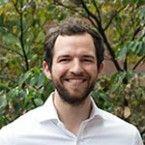- October 31, 2016
- Project on Municipal Innovation
In late September, chiefs of staff and top advisors to mayors of the largest U.S. cities gathered in Washington, D.C. for Living Cities’ 25th Anniversary and the Project on Municipal Innovation (PMI) convening, a unique initiative that provides a platform for cities to share best practices and learn about innovative policy ideas from practitioners, academics, and entrepreneurs. Moderated by Stephen Goldsmith, Daniel Paul Professor of the Practice of Government and the Director of the Innovations in American Government Program at Harvard's Kennedy School of Government, the PMI group discussed four policy areas: education, homelessness, health, and federal funding. Below are brief overviews of the panels and presentations.
Session 1: Mayors & Schools: Ensuring Quality Urban Education
Former Minneapolis Mayor R.T. Ryback discussed his survey of eight big-city mayors and their approaches to handling K-12 education issues. He was joined by former D.C. Mayor Adrian Fenty and D.C. Education Chancellor Kaya Henderson, who described how they took control of the Washington, D.C. school system, dramatically improving student performance.
Session 2: Identifying Homeless Populations and Targeting Aid
Laura Zeilinger, Director of Washington, D.C.’s Department of Human Services, and Christine Margiotta, Vice President of Community Investment at Greater L.A.’s United Way, discussed their efforts to fight homelessness. Key points of the conversation included how to measure homelessness, how to build political will around ending it, and how to provide aid efficiently.
Session 3: Holistic Approaches to Municipal Health
Shelley Hearne and Beth Jacobs, respectively Principal Investigator and Project Director at CityHealth, outlined their research into how city governments can improve the health of their populations and climates. CityHealth is in the process of ranking the U.S.’s largest cities based on nine health-related policy areas, offering recommendations for how mayors and their staff can improve.
Session 4: Federal Government and Municipal Intersections
Aden Van Noppen, Senior Advisor at the White House Office of Science Technology and Policy, and Tara McGuinness, Senior Advisor at the White House Office of Management and Budget, highlighted key ways the federal government can partner with cities to tackle issues of data for planning, police transparency, community economic development and access to high paying jobs in the tech sector.
In addition to engaging with these expert panels, chiefs of staff and policy advisors were introduced to programs and initiatives aimed at more effective municipal governance. Seth Flexman, Executive Director of Turbovote, presented on election administration innovation; Jane Wiseman and Zach Markin introduced the Civic Analytics Network and proposed different ways they could work with cities to better utilize data; Annika Brink, Energy Efficiency Advisor at the National Housing Trust, discussed energy efficiency resources for multi-family housing; and Eric Gordon, Director of Emerson College’s Engagement Lab, talked about his work on City Accelerator. Marek Gootman, Director of Strategic Partnerships and Global Engagements at the Brookings Institution, presented on how cities can better manage relationships with the federal government; and Steven Bosacker, Director of Public Sector Innovation at Living Cities, described Equipt to Innovate, a framework for enabling high performance city government.
In the coming weeks, we will share in-depth insights from the convening in separate blog posts.




